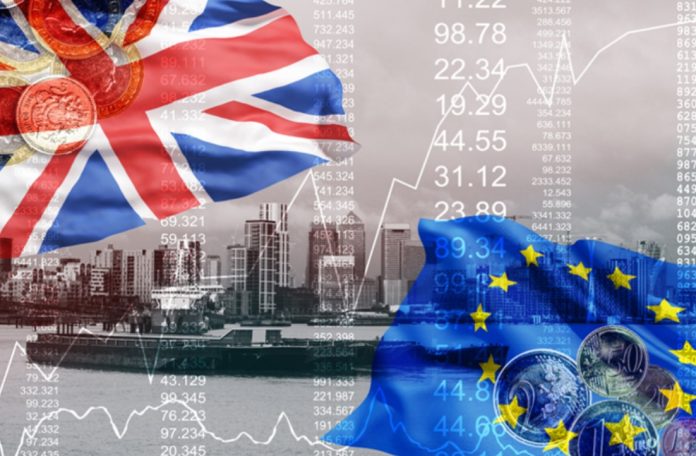Brexit, the withdrawal of the United Kingdom (UK) from the European Union (EU), has been one of the most significant political and economic events in recent history. Since the UK officially left the EU on January 31st, 2020, it has experienced a number of economic and social changes, some of which have been positive and some of which have been negative. However, with ongoing negotiations and debates about the future of the UK’s relationship with the EU, there has been increasing speculation about whether Brexit will be reversed. Proponents of Brexit reversal argue that it would have a number of positive effects on the UK economy, such as increased access to EU markets and trade deals.
However, others argue that reversing Brexit could have negative consequences, such as regulatory burdens and costs for UK businesses. This article will examine the arguments for and against Brexit reversal, and explore the potential impact that it could have on the UK economy.
Arguments for Brexit reversal
Brexit has had a significant impact on the UK economy, including restrictions on the free movement of goods and services between the UK and EU member states. However, there are potential benefits to reversing Brexit that could positively impact the UK economy as a whole.
One of the key benefits of Brexit reversal is increased access to EU markets and trade deals. This would allow UK businesses to more easily trade with EU member states without having to navigate complex regulations and tariffs. This would enable UK businesses to expand their customer base, increasing revenue and supporting job creation. Additionally, being part of the EU would enable the UK to participate in EU initiatives that support various industries, such as harmonizing regulations and ensuring a level playing field for operators across the continent.
Another potential benefit of Brexit reversal is increased collaboration with EU member states on issues such as consumer protection and anti-money laundering measures. This would help to build trust and confidence in UK businesses, both among UK customers and those in other EU member states. Increased collaboration would also benefit the wider UK economy, by supporting the growth of other industries that are reliant on cross-border trade, such as manufacturing and agriculture.
Another industry where Brexit had a significant impact was the online casino industry. The industry has been particularly affected by Brexit due to the restrictions it has placed on the free movement of goods and services between the UK and EU member states. However, there are also potential benefits to reversing Brexit that could positively impact the online casino industry and the wider UK economy.
One of the key benefits of Brexit reversal is increased access to EU markets and trade deals. This would allow UK businesses, including online casinos, to more easily trade with EU member states without having to navigate complex regulations and tariffs. This would enable UK online casinos to expand their customer base, increasing revenue and supporting job creation, whether we’re talking about the best online casino UK or just any random UK online casino. Additionally, being part of the EU would enable the UK to participate in EU initiatives that support the online casino industry, such as harmonizing regulations and ensuring a level playing field for operators across the continent.
Arguments against Brexit reversal
While there are potential benefits to reversing Brexit, there are also strong arguments against it. One of the key arguments against Brexit reversal is the potential economic and political costs. Reversing Brexit would require the UK to renegotiate its relationship with the EU, which could lead to a lengthy and complex negotiation process. This would likely cause uncertainty and instability in the UK economy, as businesses and investors wait to see what the future holds before making long-term decisions.
In addition, reversing Brexit could have negative consequences for the UK’s relationship with other countries, particularly those outside of the EU. The UK may lose the trust of non-EU countries with which it has negotiated trade deals, potentially impacting its ability to conduct international trade in the future. Furthermore, reversing Brexit could have political consequences, particularly in relation to the UK’s relationship with Scotland. The Scottish National Party has been calling for a second referendum on Scottish independence, and reversing Brexit could provide further ammunition for their cause.
Another argument against Brexit reversal is that it could result in a loss of control for the UK. One of the key reasons why many people voted in favor of Brexit was the desire to take back control of the UK’s borders, laws, and trade. Reversing Brexit could be seen as a betrayal of this desire for control, potentially leading to disillusionment and resentment among UK citizens.
Conclusion
The decision to reverse Brexit would have significant implications for the UK economy and society, and any such decision should be made carefully and after thorough consideration of the potential costs and benefits. Supporters of Brexit reversal argue that it would lead to increased access to EU markets and trade deals, while opponents argue that it could have negative consequences for the UK’s relationships with non-EU countries and lead to a loss of control.
Regardless of the final decision, it is clear that the UK economy will continue to face challenges and uncertainties in the aftermath of Brexit. Policymakers must take steps to mitigate these challenges and uncertainties, whether through supporting affected businesses and industries, investing in skills and education, or fostering innovation in emerging industries. By doing so, the UK can build a resilient and prosperous economy that can weather any future storms.



































